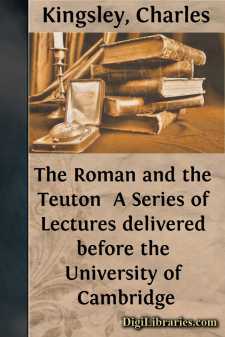Categories
- Antiques & Collectibles 13
- Architecture 36
- Art 48
- Bibles 22
- Biography & Autobiography 813
- Body, Mind & Spirit 142
- Business & Economics 28
- Children's Books 16
- Children's Fiction 13
- Computers 4
- Cooking 94
- Crafts & Hobbies 4
- Drama 346
- Education 46
- Family & Relationships 57
- Fiction 11829
- Games 19
- Gardening 17
- Health & Fitness 34
- History 1377
- House & Home 1
- Humor 147
- Juvenile Fiction 1873
- Juvenile Nonfiction 202
- Language Arts & Disciplines 88
- Law 16
- Literary Collections 686
- Literary Criticism 179
- Mathematics 13
- Medical 41
- Music 40
- Nature 179
- Non-Classifiable 1768
- Performing Arts 7
- Periodicals 1453
- Philosophy 64
- Photography 2
- Poetry 896
- Political Science 203
- Psychology 42
- Reference 154
- Religion 513
- Science 126
- Self-Help 84
- Social Science 81
- Sports & Recreation 34
- Study Aids 3
- Technology & Engineering 59
- Transportation 23
- Travel 463
- True Crime 29
Sort by:
by:
Alexander Dyce
THE TRAGICAL HISTORY OF DOCTOR FAUSTUS FROM THE QUARTO OF 1604. Enter CHORUS. CHORUS. Not marching now in fields of Thrasymene,Where Mars did mate the Carthaginians;Nor sporting in the dalliance of love,In courts of kings where state is overturn'd;Nor in the pomp of proud audacious deeds,Intends our Muse to vaunt her heavenly verse:Only this, gentlemen,—we must performThe form of Faustus'...
more...
by:
Alexander Dyce
THE TRAGICAL HISTORY OF DOCTOR FAUSTUS FROM THE QUARTO OF 1616. Enter CHORUS. CHORUS. Not marching in the fields of Thrasymene,Where Mars did mate the warlike Carthagens;Nor sporting in the dalliance of love,In courts of kings where state is overturn'd;Nor in the pomp of proud audacious deeds,Intends our Muse to vaunt her heavenly verse:Only this, gentles,—we must now performThe form of...
more...
by:
Edith Thomas
CHAPTER I. MARY'S LETTERS RECEIVED AT CLEAR SPRING FARM. One morning in early spring, John Landis, a Pennsylvania German farmer living in Schuggenhaus Township, Bucks County, on opening his mail box, fastened to a tree at the crossroads (for the convenience of rural mail carriers) found one letter for his wife Sarah, the envelope addressed in the well-known handwriting of her favorite niece, Mary...
more...
by:
Charles Kingsley
PREFACE Never shall I forget the moment when for the last time I gazed upon the manly features of Charles Kingsley, features which Death had rendered calm, grand, sublime. The constant struggle that in life seemed to allow no rest to his expression, the spirit, like a caged lion, shaking the bars of his prison, the mind striving for utterance, the soul wearying for loving response,—all that was...
more...
by:
Thomas Gordon
INTRODUCTORY NOTE The dates of the birth and death of Tacitus are uncertain, but it is probable that he was born about 54 A. D. and died after 117. He was a contemporary and friend of the younger Pliny, who addressed to him some of his most famous epistles. Tacitus was apparently of the equestrian class, was an advocate by training, and had a reputation as an orator, though none of his speeches has...
more...
PREFACE Said a friend of mine to me some months ago: “Well now, why don’t you write a sensible book? I should like to see you make people think.” “Do you believe it can be done, then?” I asked. “Well, try,” he replied. Accordingly, I have tried. This is a sensible book. I want you to understand that. This is a book to improve your mind. In this book I tell you all about...
more...
EDINBURGH: WILLIAM PATERSON LONDON: HENRY SOTHERAN & CO. MDCCCLXXIV. It is necessary to explain that in the present edition of the Ship of Fools, with a view to both philological and bibliographical interests, the text, even to the punctuation, has been printed exactly as it stands in the earlier impression (Pynson's), the authenticity of which Barclay himself thus vouches for in a deprecatory...
more...
INTRODUCTORY NOTE There are few modern poems of any country so perfect in their kind as the "Hermann and Dorothea" of Goethe. In clearness of characterization, in unity of tone, in the adjustment of background and foreground, in the conduct of the narrative, it conforms admirably to the strict canons of art; yet it preserves a freshness and spontaneity in its emotional appeal that are rare in...
more...
I Here's where I've planted my garden and here I shall care for love's blossoms— As I am taught by my muse, carefully sort them in plots: Fertile branches, whose product is golden fruit of my lifetime, Set here in happier years, tended with pleasure today. You, stand here at my side, good Priapus—albeit from thieves I've Nothing to fear. Freely pluck, whosoever would eat....
more...
I Because I believe that many do not understand the verse ofLichtenstein, do not correctly understand, do not clearly understand— II The first eighty poems are lyric. In the usual sense. They are not much different from poetry that praises gardens. The content is the distress of love, death, universal longing. The impulse to formulate them in the "cynical" vein (like cabaret songs) may, for...
more...











